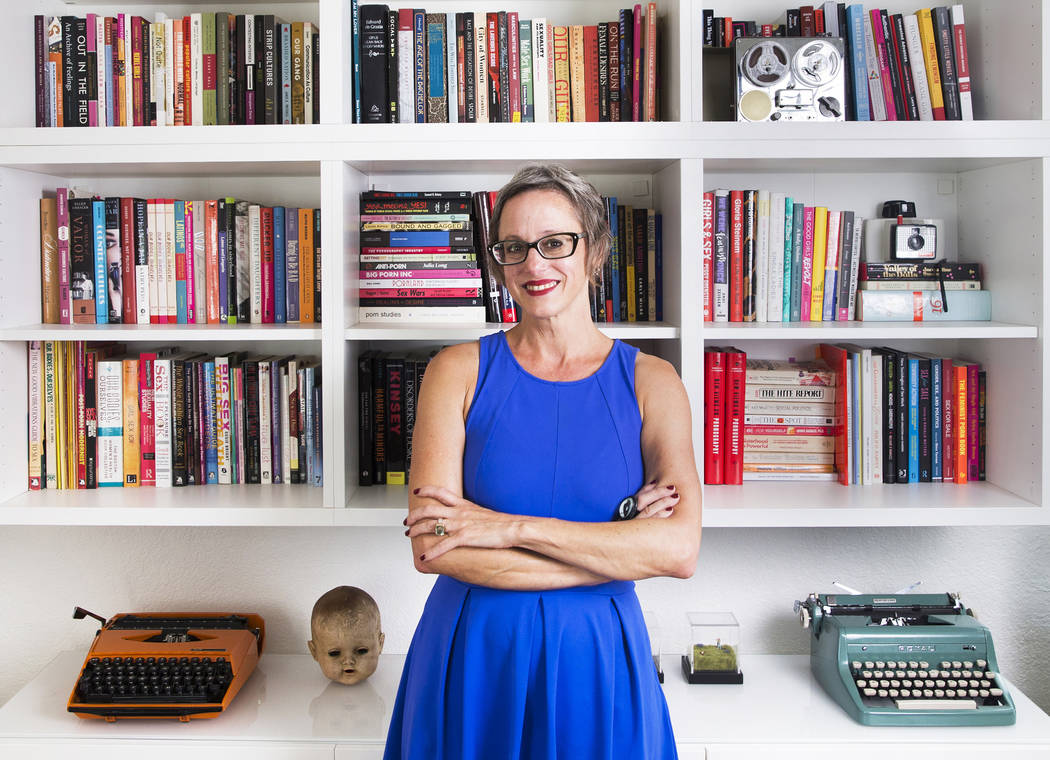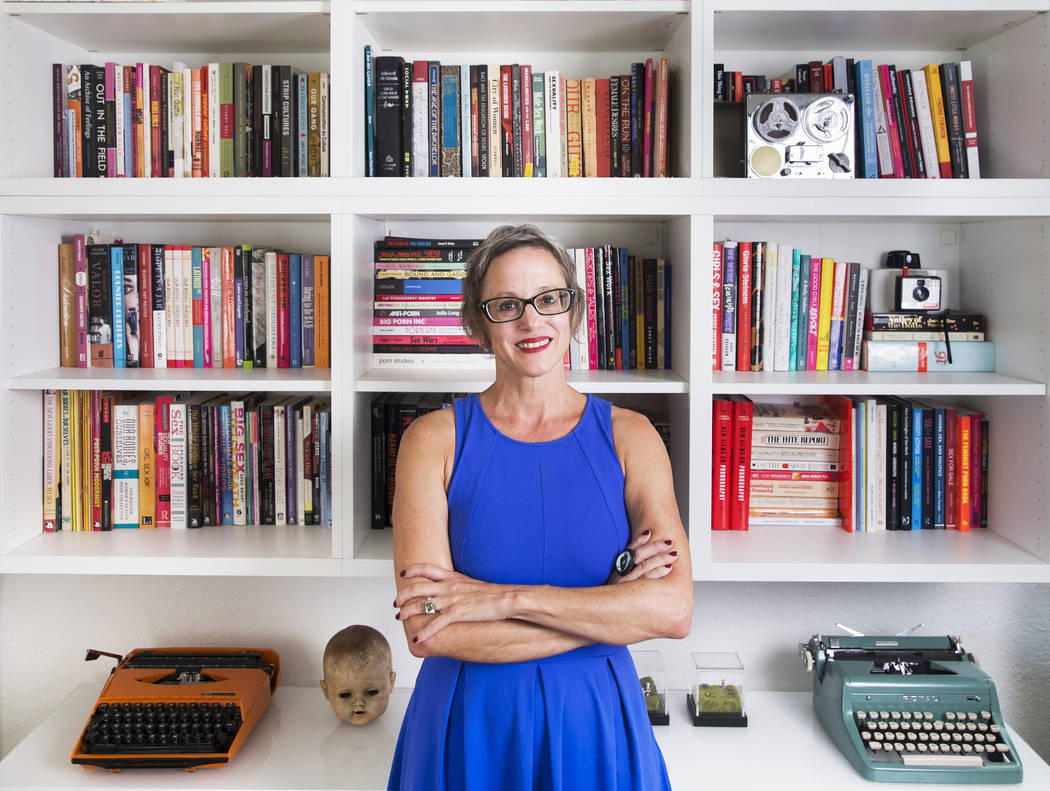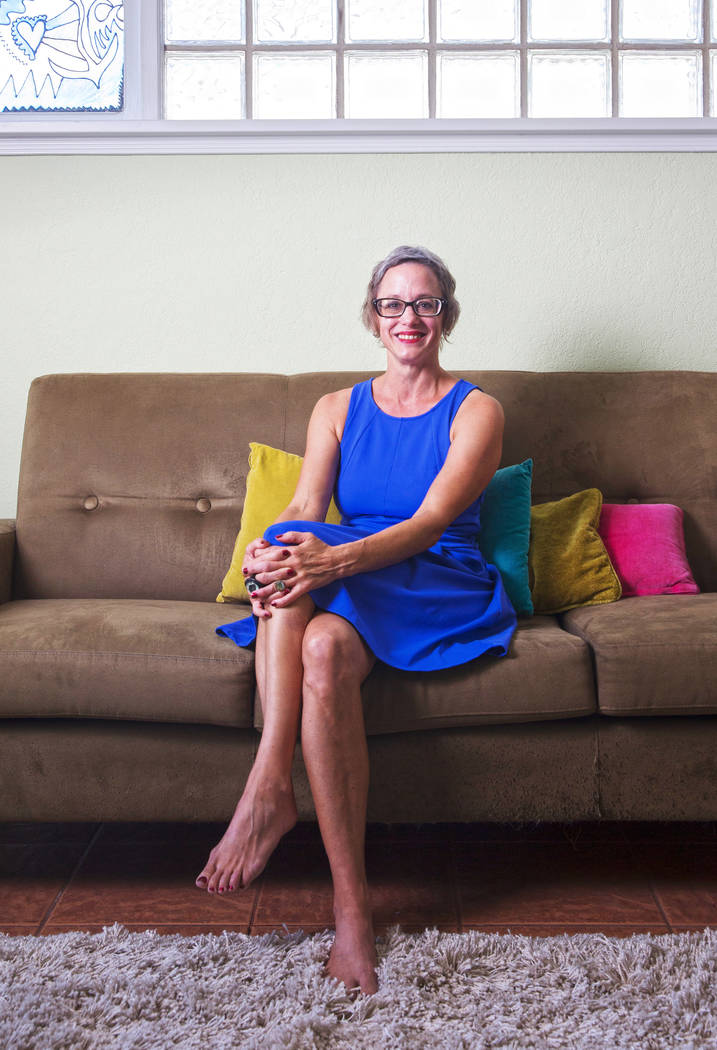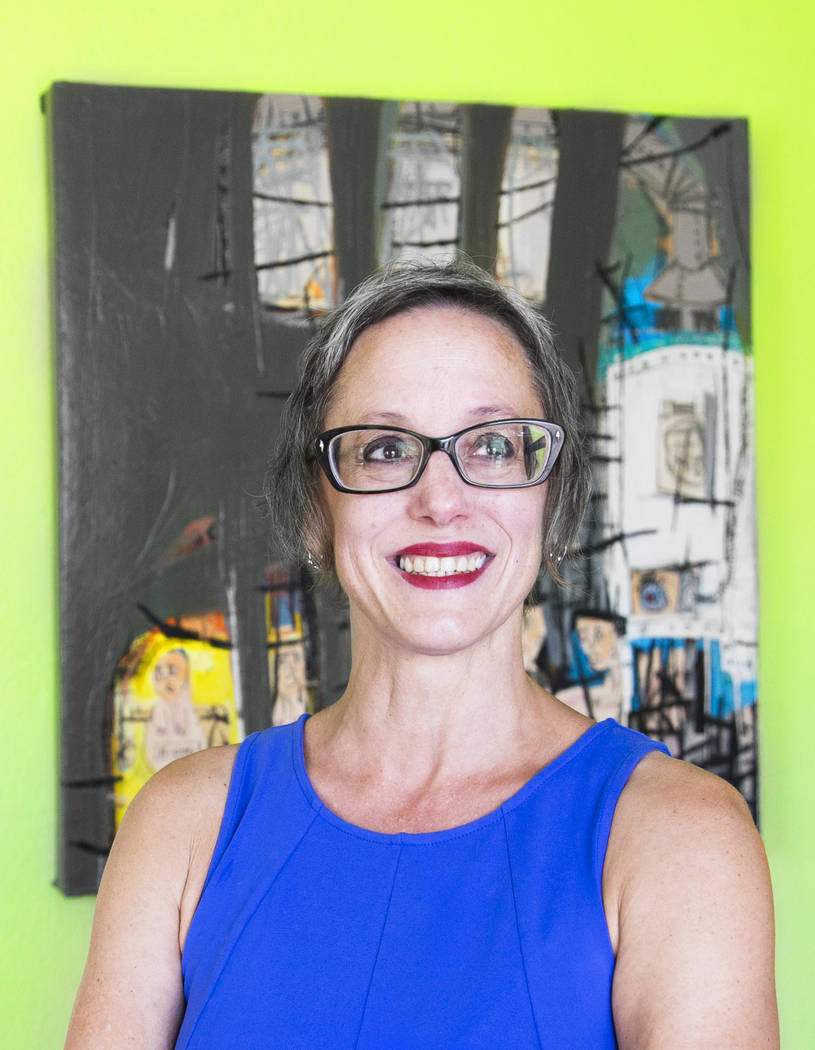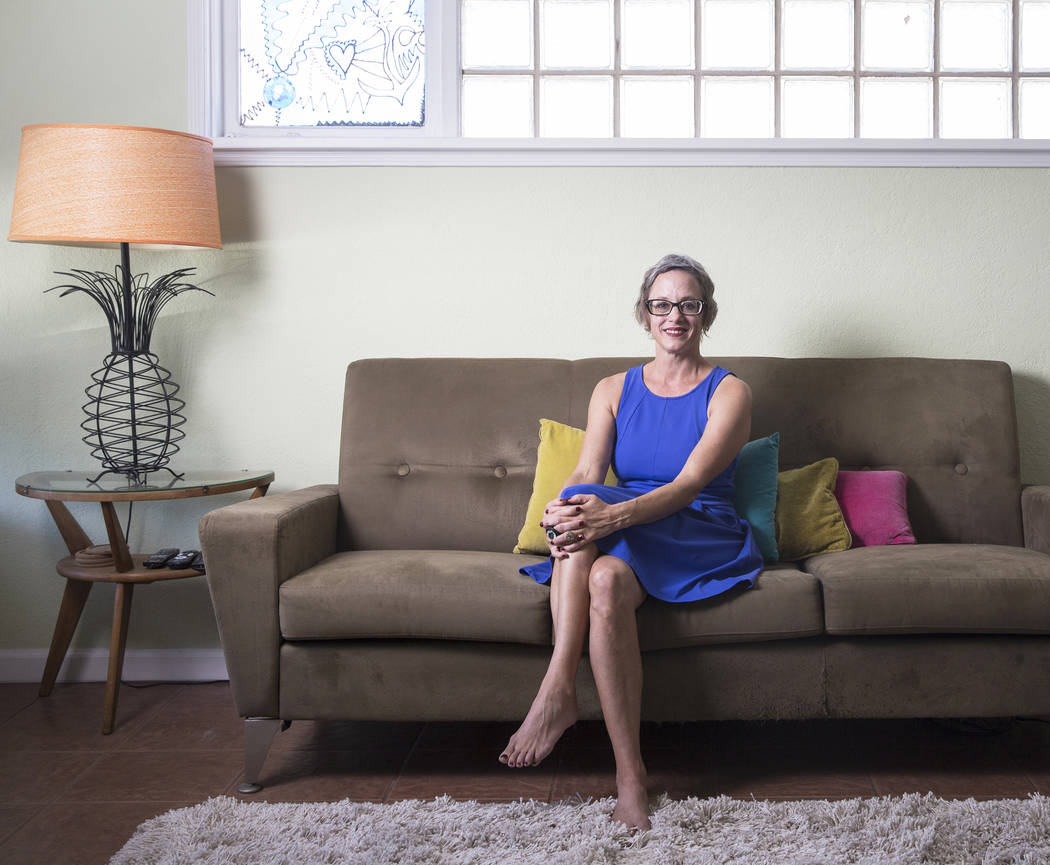UNLV professor’s book explores feminism in adult store industry
Lynn Comella had been attending the annual adult video convention in Las Vegas for years, but she remembers the 2008 event as being unusual.
The Great Recession had shown the adult industry that it wasn’t recession-proof after all. The adult film industry was experiencing the initial effects of online piracy. And, Comella says, it was the year that the convention finally started asking “What do women want?”
For the first time that she could recall, “there was all this attention to female consumers,” Comella says. “It was like, one day, mainstream wholesalers, distributors and retailers woke up and realized that women have disposable income and take pleasure seriously and are willing to invest money (in) things that make them feel good.”
Comella was particularly fascinated because she had begun work on her book, “Vibrator Nation: How Feminist Sex-Toy Stores Changed the Business of Pleasure” ($25.95, Duke University Press), and knew that a particular group of adult store owners were doing the same thing decades earlier.
In the recently released book, Comella, an associate professor of gender and sexuality studies at UNLV, explores the story of pioneering feminist adult store owners. It’s equal parts social history, popular culture, business and psychology and, while amply sourced, reads like a novel populated by memorable true-life characters.
“Before the early ’70s, there really wasn’t a market for women’s sex toys,” Comella says. Then, “with the kind of emergence of second-wave feminism, feminists were talking about a lot of different issues — the workplace, family life, education and, of course, sexuality.”
“In their consciousness-raising groups, a lot of women started talking about sexual dissatisfaction,” Comella says. “And they had similar stories, which prompted women to openly discuss things like masturbation and orgasms and their lack of orgasms.”
Women “were being encouraged to take sexuality into their own hands and were being encouraged, in part, to purchase vibrators,” Comella says. “Vibrators suddenly became tools of female liberation.”
Awareness was one thing. Access — finding stores or retailers that sold such products — was another, and many women felt uncomfortable going into conventional adult stores of the era, which tended to be dark and dingy places with standoffish staff where women often were harassed.
Into the breach came feminists who opened women-friendly businesses. Notable among them were New York’s Eve’s Garden, founded by Dell Williams, and the San Francisco Bay Area’s Good Vibrations, founded by Joani Blank, who, Comella notes, held a master’s degree in public health and “took a lot of what she learned as a sex educator and sex therapist and brought it onto the sales floor of Good Vibrations.”
These first-wave entrepreneurs viewed what they did not as commerce but as calling. Blank, for example, “was very noncompetitive: ‘Oh, you want to open a store like ours? Come on down. I’ll give you our vendor list and everything you need to go out and be in good stead to open a similar store,’ ” Comella says.
Williams and Blank “really turned the model of the traditional sex shop on its head,” Comella says. “They just decided, ‘We are going to create the kind of shop we want to shop at, and we’re going to try to create a space that’s different than those more traditional, conventional shops, because in our conversations with women, they tell us they want something different. They want a space where they feel they can go in and not be harassed.’ “
The entrepreneurs also served as mentors, educating women on topics they might feel uncomfortable talking about with anyone else.
“People might come in looking for a sexual products such as a vibrator then find out there really is a knowledgeable owner or sales staff and they’re like, ‘There’s a question I always wanted to ask, and I feel really comfortable in this space, and do you mind if I ask a question?’ “ Comella says.
What makes their story particularly interesting, Comella says, is that Blank and Williams “were such accidental businesswomen.”
Both “actually tried to get other people to open up a store, and people were like, ‘No, I’m not interested,’ ” Comella says. “I can see both of them doing this: ‘OK, if nobody else is gonna do this, I’ll do it because we need something like this.’ ”
In exploring the history, “I’m also mapping the emergence of a market for female consumers of sex toys,” Comella says. “I think that one of the narratives that runs through the book is that it’s not the case that (a) consumer market dropped from the sky already fully formed.
“So this book really is an investigation on one hand into women-friendly sex shops. On the other hand, it’s a historical examining of how a women’s market for sex toys and pornography came to be.”
Contact John Przybys at reviewjournal.com or 702-383-0280. Follow @JJPrzybys on Twitter.



